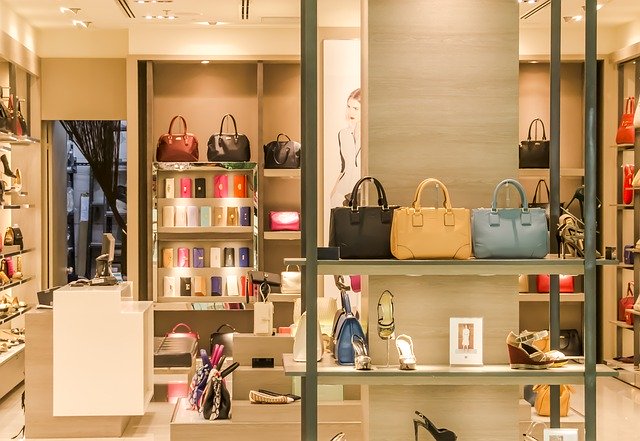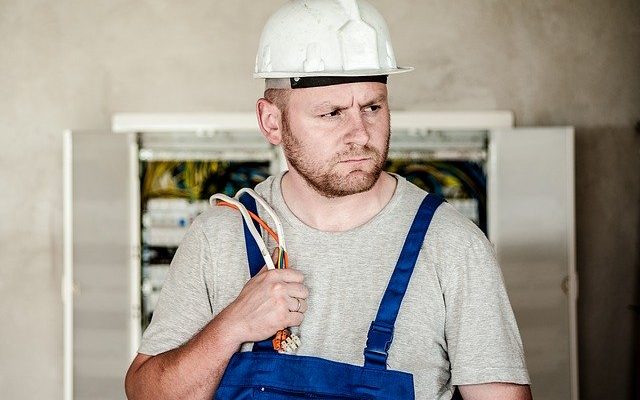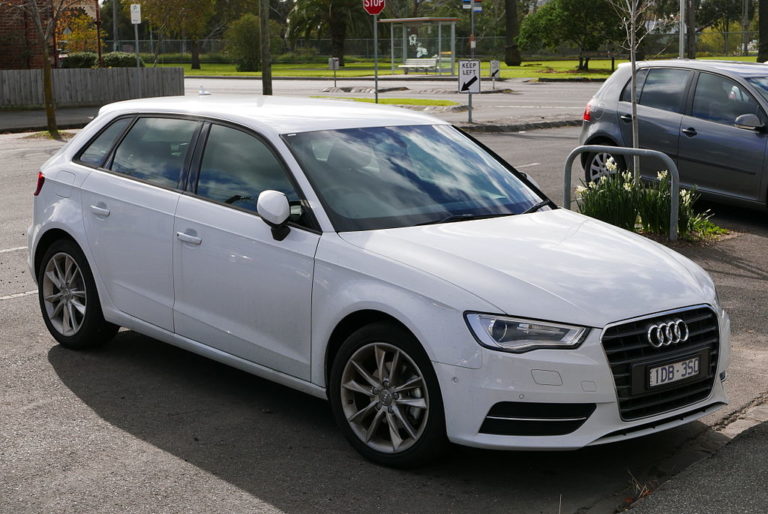How will Coronavirus impact P2P investors?
We have just experienced an extremely turbulent week in financial markets. Equities fell 7% one day, 10% another, and then US stocks rallied almost 10% late on Friday. This volatility is higher than during the worst of the 2008 financial crisis.
The equity markets have been reacting to the deteriorating economic outlook and uncertainty caused by coronavirus. Measures such as travel restrictions, reduced social interactions, and cancellation of public events will create headwinds for the global economy. The strict measures taken in China, South Korea and Italy may need to be copied by many other countries.
Central banks have cut interest rates in many countries recently, including the UK and US, to try and counter the impact of coronavirus. These measures will help, but we still expect to still see some economic weakness, and potentially even recessions in some countries. This will lead to higher business insolvencies, more loan defaults, and higher unemployment. We also expect that funding will be harder to find for some loan originators.
We expect P2P returns to outperform other options this year
Priority number one for everyone right now is the health of their families, friends and the wider community. We realise that any other topics such as investing are far less important and a secondary concern.
However we know that when there is an uncertain outlook, people quickly focus on the security of their own personal finances. Many investors will be wondering – should they reduce their P2P investments? Should they switch out of equities and into credit (including P2P loans)? Or should they just ‘sit on their hands’, make no changes, and see how things play out?
That decision is something each investor needs to decide for themselves based on their own circumstances and outlook. However there will be one big consideration for anyone considering changing their portfolios – where to put those funds? Bank deposits are an option, and safe, but they yield close to zero. Government bonds have a negative yield in many countries. Equities are extremely volatile and could drop further.
That means that the biggest alternatives to P2P loans are either highly volatile, or offer no returns. We think this type of market environment can actually make P2P loans one of the best investment options available right now. Even with the uncertainties ahead, it should be possible to generate positive returns from P2P, without the downside risks of equities.
However, the deteriorating economic outlook means that it is prudent to be more conservative with P2P loan selection. Below we list the types of loans that are likely to be at most risk from the impacts of coronavirus, and some better alternatives.
These types of loans are most at risk
Unsecured loans to small businesses
We’ve never been big fans of buying unsecured P2P loans made to individual businesses (sometimes called ‘P2B’). That’s because often there is insufficient financial information provided by the borrowers. Frankly, we also don’t have much confidence in the underwriting abilities and experience of the teams running some sites.
We recently reviewed the loans on one European P2P site and saw many loans to companies involved in bars, restaurants, retail, events and trade shows. The outlook for each of these sectors is poor and we would consider these loans at high risk from being impacted by coronavirus.

Loans to self employed people
You can think of self employed people as small businesses with one employee. Self employed people tend to make good money when the economy is strong, but suffer during a downturn. We expect delinquencies on loans to self employed people to increase. This increase will be higher than for loans to people who are employed by companies. Only some P2P sites provide details about the employment status of borrowers, but if they do, we would recommend avoiding loans to self employed borrowers right now.

Loans secured by land
We have often warned against investing in P2P loans secured only by land. The reason for this is because of what we observed during the last financial crisis. When property prices decline, two things happen. Land values can fall dramatically, and become almost impossible to sell, as there are no real buyers. The value of land is extremely volatile because its value is highly leveraged to the value of any completed property that could be sold on that land. A fall of 20% in property prices can lead to falls of 75% in land values, for example. Most of the P2P loans secured by land have LTVs of 40-60% and we think that is too high, particularly in this environment. Land that is most at risk from big price falls is located in less dense areas, such as housing developments on the outskirts of cities and towns. Cheap land (lower prices per square metre) has the most price volatility. Land located in the best locations (i.e central parts of cities and towns) is less volatile.

Loans to some development projects
Coronavirus may potentially impact real estate development projects in several ways. Firstly, construction works may be disrupted, either due to lack of supplies, or because workers are not permitted to attend the site. That is a problem for investors because incomplete projects are worth very little, and there is a risk that developers may abandon a project if they don’t see any prospects of recovering any of their investment. Even if projects are completed, it could take significantly more time than expected to either sell the properties, or to refinance the P2P loans.
This means that developments that are in their early stages, with a long construction period ahead, are particularly risky propositions right now. We have always preferred development projects that involve either renovations, changes of use (such as from commercial to residential), or can be completed quickly. In the current situation it is better to favour these types of projects, as they are much less risky, and the returns available are similar to the higher risk development projects.

Loans issued by weak loan originators
Many European P2P loans are issued with a ‘buyback guarantee’ if the borrower defaults. That means that there is no risk to the investor, unless both the borrower and loan originator default on their obligations. If more borrowers default in the future, that means that loan originators are going to have to buy back more loans from investors, which hurts their profits.
During the financial crisis it became very difficult for weaker finance companies to borrow funds, or raise equity. It is possible we may see a similar situation in coming months.
We have always tried to highlight the importance of selecting the best loan originators. We publish ratings for loan originators found on various P2P sites to help assist investors with this. So far, we haven’t seen a huge number of defaults by these loan originators. There is a risk that could change over the next year. It is more important than ever to stay away from lower quality loan originators.

These types of loans should out-perform
Auto-loans
Auto loans (loans secured by vehicles) performed extremely well during the 2008 financial crisis. That is because many people relied on their vehicles to get to their jobs. Falling behind on payments could lead to a loss of their car which could then lead to a loss of their job. It is difficult to know whether any recession or disruptions caused by coronavirus would result in the same strong performance of auto loans. We suspect that it would. If defaults increased, the impact would be manageable for most loan originators, because in many cases the repossession value of the car would be able to cover most or all of the loan balance.

Loans secured by real estate
If we can expect loan defaults to go up, minimising losses from defaults becomes more important. It makes having good quality real estate collateral more important. When borrowers default, it takes longer for investors to get their money back. However if the LTV is not too high, and the asset is good quality, they will usually get a full recovery on their investment. We particularly like loans secured with residential property right now. That’s because property values and buyer demand tend to be less impacted by changes in the economic environment than commercial assets like shops, offices and factories.
Some loans secured on commercial assets could be attractive, even if the economy is suffering. But it is important to be selective. Focus on the loan to value ‘LTV’ (the lower the better) and also the quality of the asset. How old is it? How many other businesses could use it? Is it in a good location?
Examples – Bridgecrowd, Kuflink, Lenno (Viventor), Fireof (Mintos), British Pearl, Estateguru

Loans guaranteed by profitable and strong loan originators
Loan originators that are profitable and have strong balance sheets are much more likely to honour their buyback guarantee obligations in the coming months. Profitable, successful lenders are more able to cope with rising defaults. Larger lenders, with higher levels of capital are also more likely to be able to retain their funding lines, issue bonds, and raise more equity from shareholders if needed.
Examples – iute Credit (Mintos), ID Finance (Mintos), Aventus (Peerberry), Credit Star (Lendermarket)

Super senior investments
What is a super senior investment? This refers to secured P2P loans and products where other investors provide additional protection by providing ‘first loss’ protection. Usually this is in the form of a co-investment into a senior loan, which is contractually required to absorb any losses first, if a loan defaults and the collateral is sold for less than the amount of the senior loan. This protection is usually between 5 to 25% of the total amount of the senior loan. These super senior investments are the lowest risk P2P investment options, as investors get protected by having collateral security, and then the subordination from the first loss protection.

Loans in less-impacted countries
It is early days in the fight against the coronavirus. However early indications are that the rates of infection, and potential impact may become higher in some countries than others. This is something that most sophisticated investors will be keeping a close eye on. It is now possible to invest in P2P loans from many countries around the world, often with very short maturities of only 1-2 months. If some countries are heavily impacted, and some less so, it would make sense to shift portfolio allocations towards less affected countries (assuming that quality loan originators can be found in those countries). It is far too early to say whether this prediction is accurate, but it will be important to monitor the situation closely in the next few months.

Pingback: Aventus CEO Andrejus Trofimovas on how they are reacting to COVID-19
I had a look at the bond market in Riga where Delfin and Mogo are listed.
Delfin 15% coupon bond has a quite stable price right now, although Mogo 10% bond that matures 2021-03-31 is trading at a 16% discount!
http://www.nasdaqomxnordic.com/bonds/baltic
The 16% discount for a 1 year maturity bond with 10% coupon rate gives a ~28% interest rate!
This means that anyone looking at buying Mogo through Mintos “below market price” should be aiming at a YTM of at least 28%!
Currently I’m reinvesting all my money on Mintos in Delfin Group on the secondary market.
In the topic: Loans guaranteed by profitable and strong loan originators
You talk about ID Finance on Mintos.
Id Finance is split on Mintos into IDF Eurasia and ID Finance.
Maybe change the name in IDF Eurasia, because I think you mean this LO?
Monethera a scam, Grupeer looking like one.
The safest place to be is the fuck outta P2P
Cuntish
Great post!
I was wondering also about car loans. I think one key question is: how easy it will be to sell the cars as collateral in case they default (let’s say in Q2 -Q4). I read somewhere that the market of used cars also stalled because of the virus. Maybe there will be also discount on new cars as traders want to get rid of their inventories, which will be more difficult as there will be a drop in demand as many people and companies will have reduced incomes. On the other hand new cars are not produced because of the break in the supply chain. So is there a danger that the car collateral will not be liquid, and drop in value?
And what is your opinion on pawnbroking loans? They have a collateral.
I think agricultural loans might also be interesting, as there will be demand fro food. Although the returns on these is not so high.
I would be interested in hearing your thoughts on these.
Hi. In the last big recession the price of second hand cars was actually slightly higher than normal / there was less depreciation. Why? Because the people who normally sold after 3 years to get a new car, held it a bit longer, and so there was much less supply. Agriculture loans should not have any impact from the current events, although they obviously have some other types of risk. Pawnbroking loans – depends on the collateral. The value of ‘stuff’ can go down quite a lot in a crisis, and the lender needs to haircut their values more to stay safe. But these types of loans should still perform better than others in a downturn.
Hi Oscar, Thank you for sharing your experience and thoughts! Your feedback definitely adds important perspectives. I did not consider enough negative effects on used car supply, and my thinking was biased towards “gold jewelry” as a “typical” pawnbroking collateral, which is not necessarily the case.
Would you -especially currently- view it as a benefit if loan originators use multiple lending platforms for funding (example: Kviku at Mintos, Viventor, Bondster, Fast Invest) or does it more likely indicate weakness, a sign of more urgent liquidity needs and overleveraging?
Do you believe at the moment it could be more wise (less platform risk) to use multi lending platforms like Mintos/Viventor (choosing 1-3 strong LO’s), or to invest in profitable single loan originator platforms like Viainvest/Lendermarket, perhaps providing more short term stability (also no secondary market pressure) and betting on their survival to weather the storm?
Great post! 🙂
Thanks a lot for your thoughts and reasoning. Do you consider business loans secured by invoices (factoring) a type of investment to outperform or lower some risk in this environment? Or do you feel the economic outlook may be have become too shaky to consider those invoices a more solid security?
Hi Svegt, which site / loan originator did you have in mind? Invoice factoring has had a pretty good performance record through past recessions. It should be at the lower risk of the spectrum, but to some extent it depends on the details such as the profile of what types of companies are due to be paying the invoices, and how reliable they are.
Hi Oscar, I’m thinking mainly about Atlantis Financiers (customers in Netherlands/Belgium), besides the buyback guarantee, providing in some cases Recourse factoring and in few cases Invoice insurance. Indeed, it depends on business sectors, liquidity and repayment ability but it’s good to know generally invoice factoring could be viewed at the lower risk of the spectrum.
I’m buying loans mogo on secondary market more than the new ones as I believe the others at 16% will just be bought back in time.
I believe mintos will go all out to keep the ship affloat . As grim as things are there will be a peak. Mintos know once that’s passed the money starts flowing again .
If I’m proved wrong such is life and it is money I can afford to lose .
What do you think about my Mogo theory Hans and are you buying anything at moment ?
Hi Peter. Your logic makes sense. We know there a lot of people are buying loans on the secondary market at a discount. As you say, Mintos LO’s have the ability to buy back any loan at par whenever they like. So a 16% loan on the primary market may be a good rate that can be earned for a few months. But a 16% YTM loan bought at a discount means that even if the loan is bought back early, the investor will have earned a 16% return, plus any uplift from buying at a discount…. Some people have also been buying loans at discounts that are shortly due to be bought back through a buyback guarantee. The implied yields on those loans are extremely high right now (although the investment duration is short).
Interesting piece
I’m new to this. Thought downturn due to sad events might be good time dip my toe. I plan to only use mintos to begin with. I note lots of Mogo car loans at 10% discount , many current and one of best LO on mintos. Why think you Hands this is so ?
Considering the sharp decline in money-flow to P2P, example Mintos (see statistics), Currently million+ of loans are for sale, +10% and above discounts are common. LOs already are not paying our money back (never ending pending payments). It looks to me like the ship is sinking
Hi Virgil. Doesn’t seem that there is a lot of Mogo available at the moment at 10%+ discounts (in terms of total amount that can be invested). But it definitely makes sense to see loans offered at big discounts – many are loans with interest rates at 9.5% but the primary market is now offering much higher rates than that now. All lenders will be increasing the interest rates on any new loans that they make, and will be paying more to P2P investors to fund them.
Thank you Hans,
But offering new loans with higher interest rates is only the half of the game.
Will these lenders be able to survive when they’ll have to pay more and more buy-back guarantees due to the increasing number of loans in default ?
So if investors don’t get their money back, I’m not sure why they would invest in these higher rate loans.
Can you shed my light ? 🙂
Thank you in advance !
That is definitely the key question. One way to try and assess this is to make the following assumption – what happens if bad debt costs go up 40-60%, and funding costs increase by say 3%pa? That is roughly what happened in 2008/09 for many unsecured lenders. Most LO’s provide their P&L and Balance Sheets, so it is not too difficult to run this type of scenario and see what happens. For many LO’s it will be fine, for others, things will not look good. That’s why we say that now is the time to stick to the best quality, most profitable LO’s.
Cool head required. I’m picking up bits and pieces at 10% + discount here and there. We have an initial shock, major as it may be then things will start to settle after few months.
Fear and opportunity are twins
P2P is imploding. Europe will be an economic desert for most of the next year. Just look at the numbers and discounts on mintos secondary market.
Bloggers with say anything to keep the commisions coming in a few days longer.
Tens of millions are about to die worldwide through Corona.
Tens of millions are going to die from Corona? That’s complete nonsense. The situation will be under control in a few weeks, just like it already is in China and Korea.
I stand by my statement that their will be tens of million deaths worldwide. If you knew the science you would to. This thing is still in its infancy. When it fully proliferates the death toll will be staggering .
Strikes me a car ain’t much good if your confined to your home. People who cant work be paying for food before any car loan. People are fleeing P2P . This is going to be grim on every investment.
Its best left sitting doing nothing in a proper bank in my view
Tony
Everyone has a different outlook right now which is understandable. Based on the China experience and measures announced in Italy and Spain it doesn’t seem likely that quarantine of the entire working age population would be enforced for such a long period that they would decide that they no longer wanted or needed a vehicle. We were just highlighting that auto loans have performed very well in the past in crises and are one of the highest quality options in P2P in this environment.
” I was also thinking to manually buy on the secondary market loans with good discounts. But I read it is a bad idea. But there was no explanation why not to do it.”
I would also love to hear your thoughts on the question above. I have done a few small scale purchases of mainly car loans from decent LOs. More as a fun punt. Tempted to do a couple K experiment just for shits n giggles
Arthur Kit
P.S – Nice post
Thank you Hans,
First of all indeed, may you and your family stay safe.
Thank you for your advices!
As I only began investing in P2P on January, a couple of questions :
– as a general rule, I suppose it is best to only select in the auto-invest the originators having the best scores in your matrix table?
– I heard that several person will begin to withdraw money from their P2P platforms. Do you advice this withdraw? Or only pause temporarily the auto-invest for a couple of weeks / month, and activate it back when the medical situation is more clear?
– I was also thinking to manually buy on the secondary market loans with good discounts. But I read it is a bad idea. But there was no explanation why not to do it.
Thank you in advance for your advices!